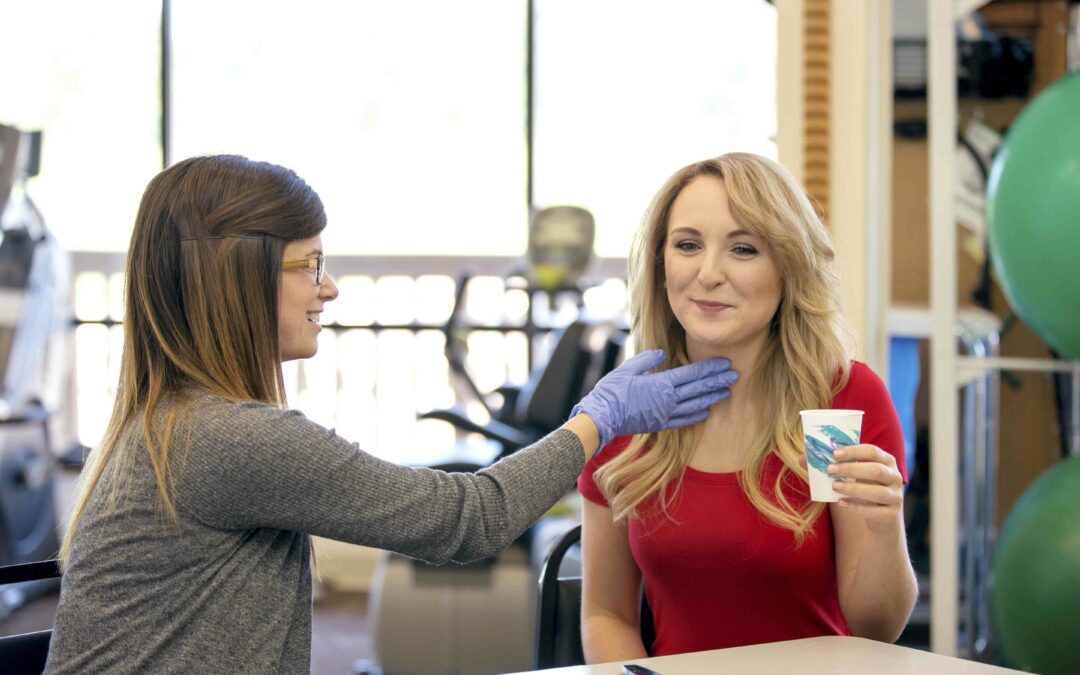I am often asked, “What is it that you do?” Most people think a speech therapist is primarily limited to kids with speech issues or adults after a stroke or injury. While this is partly true, I actually handle a wide-range of communication difficulties. Many times I have to address my patients’ hearing and cognitive issues as a part of therapy. Speech therapists even help patients who have trouble swallowing.
A better title for me is a Speech-Language Pathologist (SLP). We specialize in the evaluation and treatment of communication disorders, cognitive deficits and swallowing disorders. We provide a wide range of patient services and support for individuals, families, groups as well as providing information for the general public. SLPs work to prevent, assess, diagnose, and treat disorders of speech, language, social communication, cognitive-communication, and swallowing in both children and adults.
Speech, language, and swallowing disorders occur for a variety of reasons:
- Stroke
- Brain injury
- Hearing loss
- Developmental delay
- Cleft palate (fourth most common birth defect)
- Diseases such as Cancer, cerebral palsy, multiple sclerosis, Parkinson’s and dementia
In 2030, the number of Americans older than 65 will have doubled since 2000 to more than 72 million. (A Profile of Older Americans: 2008). As people age, normal changes occur in their speech, language, memory, and swallowing. In addition, their chances of having a stroke or developing dementia or Parkinson’s disease increase, as do the chances of acquiring a communication or swallowing disorder related to these diseases. Speech-language pathologists play a critical role in working with this aging population, assisting in making a distinction between normal aging and disorders affecting communication or swallowing function. SLPs also have a role in preventing communication and swallowing disorders by promoting healthy lifestyles and educating consumers about how to prevent stroke and other disorders that often lead to impairments. St. Mary’s is a certified stroke center and we excel in this area and in treating the many deficits that can result from stroke.
Speech therapy services begin with initial screenings for communication or swallowing disorders. After assessment and diagnosis, we work with other healthcare professionals as part of a multidisciplinary approach, such as:
- Audiologists
- Physicians
- Dentists
- Nurse practitioners
- Nurses
- Occupational therapists
- Physical therapists
This list may also include dieticians and family members based on the individual needs of the patient.
With swallowing disorders, we look at diet modification to avoid foods that might get into the lungs. In addition to other swallowing therapy techniques, we also offer Vital Stim treatment (neuromuscular electrical stimulation) to help these patients strengthen their muscles, swallow more efficiently, and return to a regular diet and liquids.
With other adults wanting to get back into the work environment, I’ll help them work on strategies for focus, memory, problem-solving, or divided attention, in a manner they can learn best, so they can return to work and be productive. Everyone is different in how they learn techniques. Some are more visual. Some learn more from listening.
Problems with language can be “receptive” (trouble understanding language), or “expressive” (trouble speaking language). Issues range from articulation problems – not speaking clearly and making errors in sounds, to fluency problems with the flow of speech such as stuttering, to not being able to say anything at all. Difficulties with voice quality and volume can also come into play. Again, our job is to find strategies to overcome these issues that could impede everyday function and daily tasks.
May is Better Hearing and Speech Month. I’m grateful to have the opportunity to raise awareness about communication disorders and our role as therapists involved in providing what is often life-altering care.
— Gina DeBarthe is a Speech Language Therapist and Doctoral Candidate at the University of Kansas at St. Mary’s Medical Center and can be reached at 816-655-5692.


